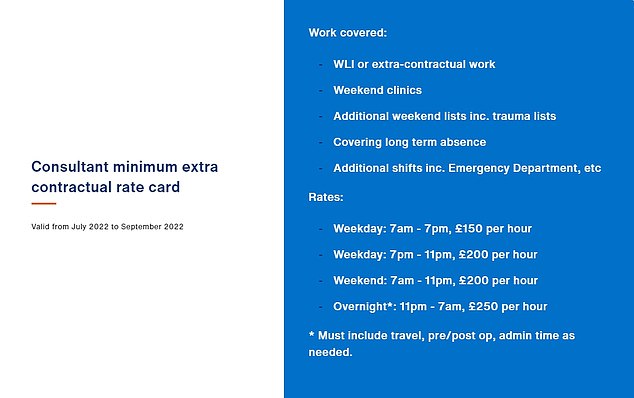
Software engineers must have a good understanding of software development processes and how to model and structure problems. They also need to be able and willing to translate end-user requirements into technical specifications. Software engineers must be able to build and test software. Software engineers are usually team-oriented and project-oriented. The role of a software engineer is to assist in the software's development, deployment, and maintenance. This article will cover the essential skills necessary to be successful in this field.
Job description
If you're looking for a job in software engineering, you can create a stellar job description that will attract top candidates. There are many ways you can create a job description of a software engineer. To begin, you should think about the goals of your organization when hiring a software engineering professional. Maybe your goal is to revolutionize finance with machine learning. Or maybe you are looking for technical solutions that will scale growth. No matter what your motivations, your job description should reflect your purpose.

Salary
There are many factors that affect the salary of a software engineer. It is important to consider the work type and the location of your employer. This salary data is averaged across a two-month period. The 2018 federal and state tax tables are used to calculate taxes. Other taxes may not be considered in certain metro areas. The information contained in this article is for informational purposes only and is not intended to provide prescriptive financial advice.
Career paths
Software engineers can choose from several career tracks. They can decide to become freelance or contract workers. Each type offers unique opportunities for growth. Both types of software engineers are classified by the US Bureau of Labor Statistics as engineers. These are some common pathways for software engineers. These careers are often started as entry-level software engineers. They can advance to higher-level roles as they gain experience, and their skills improve. Software developers could become a senior engineer, project manager or chief technology officer.
Education is necessary
Software engineers require relatively basic education. Software engineers maintain and develop programs for various apps. Many of these programs revolve around relational database and require strong analysis skills. Some programs use non-relational databases such as Mongo DB and BigTable, which are popular among web developers. A high quality degree program will highlight logical decisions, written and verbal communication, professionalism, ethics, customer service, professional ethics and written communication. If you have already studied computer science, you can start studying for a software engineer career.

Work environment
Software engineers are often tasked with working long hours in front of a computer. They must constantly communicate with colleagues and explain complicated programs to people who do not know much about software development. Long-term computer use can lead to back pain, eye strain, and carpal tunnel. Work environments must be conducive to creative thinking. However, there are some employers that offer incentives to developers. Here are some of the most important features that a software engineer's workplace environment should offer.
FAQ
Can I get a degree as a consultant?
The best way to become an expert on any subject is by studying the subject thoroughly and then practicing what you have learned.
If you are interested in becoming a great advisor, then start learning now!
It may be difficult to get hired if your degree is not accompanied by relevant work experience. If you have demonstrated that you have studied the same subjects as those who received the jobs, then you may still be eligible to apply.
Employers are always looking for people with real-world knowledge.
What can I anticipate from my consultant
Within a few days of selecting your consultant, you can expect to hear back. They will typically ask for information about the company, such as its mission, goals. products and services. budget. They will then send you a proposal that outlines the scope of work and estimates timeframe, fees, deliverables, milestones and other details.
If everything looks good, then the two parties will negotiate a written contract. The terms of the contract will depend on the type of relationship between the two parties (e.g., employer-employee, employer-independent contractor).
If all goes according to plan, the consultant will begin working immediately. The consultant will have full access to your files and resources. You'll also have access to their skills and knowledge.
Don't assume that someone who is a consultant knows everything. It takes effort and practice to become an expert in whatever field you consult. Don't expect your consultant know everything about your company.
Do I have to pay tax on consulting income
Yes. You will have to pay taxes on your consulting profits. This amount will depend on how much you earn each year.
You can also claim expenses if you are self-employed. This includes rent, childcare, food, and transportation.
However, you can't deduct interest payments for loans, vehicle depreciation or the cost to purchase equipment.
Only 25% of your expenses can be claimed back if you make less than PS10,000 annually.
You might be taxed even if you make more than the threshold depending on whether your income is contractor or employee.
The PAYE tax for employees and the VAT tax for contractors is generally paid as you earn.
How do you choose a consultant to help me?
There are three key factors to be aware of:
-
Experience - How skilled is the consultant? Is she an expert, beginner, intermediate or advanced consultant? Does her resume reflect the knowledge and skills she has?
-
Education – What did this person learn at school? Did he/she study any relevant courses after graduating from high school? Are we able to see evidence of his/her learning through the way he/she writes
-
Personality - How do we feel about this person? Would you want this person to work for you?
-
These questions help to decide if the consultant suits our needs. If there are no clear answers, then it might be worth an initial interview to learn more about the candidate.
What is a consultant and what are their responsibilities?
Consultants are those who offer services to other people. It's more than just a job title. This role allows you to help others achieve their dreams. This is done by helping others understand their options and making the right decisions.
Consultants are skilled at solving problems and overcoming challenges that can arise during projects. Consultants can also offer advice and guidance regarding how to implement these solutions.
Consultants should be able and willing to answer any questions regarding business, technology or finance, leadership, strategy, customer service, legal, management, leadership, management, law, management, law, procurement, legal, marketing, human resources, etc.
Why would a company employ a consultant to help them?
Consultants offer expert advice to help improve your business' performance. They are not there to sell you products.
Consulting helps companies make better decisions. They provide sound analysis and offer suggestions for improvement.
Senior management teams often have consultants working closely with them to help them understand their needs.
They also offer leadership training and coaching to ensure that employees are able to perform at their best.
They may advise businesses on reducing costs, streamlining processes, and increasing efficiency.
Statistics
- My 10 years of experience and 6-step program have helped over 20 clients boost their sales by an average of 33% in 6 months. (consultingsuccess.com)
- Over 62% of consultants were dissatisfied with their former jobs before starting their consulting business. (consultingsuccess.com)
- According to IBISWorld, revenues in the consulting industry will exceed $261 billion in 2020. (nerdwallet.com)
- On average, your program increases the sales team's performance by 33%. (consultingsuccess.com)
- According to statistics from the ONS, the UK has around 300,000 consultants, of which around 63,000 professionals work as management consultants. (consultancy.uk)
External Links
How To
How can you find the best consultants?
First, ask yourself what kind of consultant you are looking for. Before you begin looking for a consultant, it is important to know what your expectations are. Make a list of everything you think you might need from a consultant. This could include things like; professional expertise, technical skills, project management ability, communication skills, availability, etc. After you have outlined your requirements, you might want to ask friends and colleagues for recommendations. Ask them about their experiences with consultants and compare their recommendations to yours. Do some internet research if they don't have recommendations. There are many websites, such as LinkedIn, Facebook, Angie's List, Indeed, etc., where people post reviews of their previous work experiences. Look at the ratings and comments left by others and use this data as a starting point for finding potential candidates. Once you have narrowed down your list, reach out to potential candidates and set up an interview. In the interview, discuss your needs and ask them for their suggestions on how you can achieve them. It doesn’t matter if the person was recommended to you; it matters that they understand your business goals, and can show you how they can help.